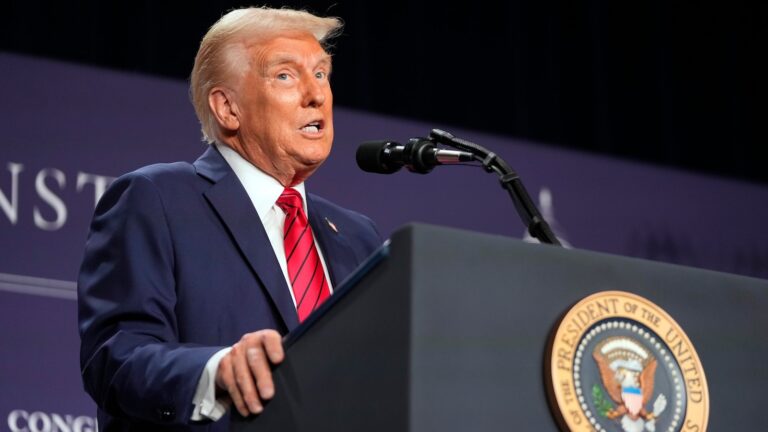Federal Agencies Directed to Halt Financial Assistance Programs Under New Trump Administration Guidelines
In a significant development, the White House Office of Management and Budget (OMB) has issued a directive instructing all federal agencies to suspend financial assistance programs if there is any concern that such spending conflicts with the recent executive orders from President Donald Trump. This directive is poised to impact a wide array of federal financial support initiatives that play a crucial role in various sectors, including education, housing, and research.
Mandatory Compliance Deadline for Federal Agencies
According to an OMB memorandum obtained by ABC News, federal agencies are required to adhere to this directive by 5 p.m. on Tuesday. The memo emphasizes the necessity for compliance, indicating that federal agencies must critically evaluate their financial assistance programs to ensure they align with the president’s policies. However, the memo notably lacks clarity regarding which specific financial aid programs are to be suspended, leaving agencies in a state of uncertainty.
Potential Implications of the Directive
This order emerges amidst a slew of executive decisions made this month, many of which have prompted significant backlash and legal challenges. Matthew Vaeth, the acting director of the OMB, articulated the administration’s stance, stating, "The use of federal resources to advance Marxist policies, transgender and green policies of the New Deal in social engineering is a waste of taxpayer dollars that do not improve the daily lives of those we serve."
The ramifications of this directive could prove to be profound. The federal government administers thousands of financial programs that offer critical support, such as research grants, housing assistance, and educational subsidies. By potentially halting these initiatives, the administration risks undermining the very foundation of support that many communities depend on.
Review and Reporting Requirements
To facilitate this process, agencies have been instructed to "identify and review all federal financial assistance programs and support activities." They are expected to report back by February 10 on all applicable programs, detailing those that may need to be suspended due to the new guidelines. The memo insists that, while under the purview of applicable law, agencies must temporarily suspend all obligations or disbursements of federal funding that could conflict with the executive orders. This includes, but is not limited to, foreign aid, funding for non-governmental organizations, and initiatives associated with what the administration terms "woke ideology" and the Green New Deal.
Political Reactions to the OMB Memo
In response to the OMB’s directive, Senate Minority Leader Chuck Schumer issued a statement urging the Trump administration to reconsider this course of action. “Congress has approved these investments and they are not optional; they are the law,” Schumer asserted. He highlighted the essential role these subsidies play in supporting families across both red and blue states, contributing to stronger communities and facilitating the raising of children.
As the situation evolves, the outcome of this directive may influence not only federal funding but also the wider political landscape, as stakeholders from various sectors react to the potential suspension of vital financial programs.
Conclusion
The recent directive from the White House represents a significant turn in federal financial policy, with far-reaching implications for numerous assistance programs across the country. As agencies scramble to comply with these new guidelines, the potential consequences for communities relying on federal support remain to be seen. Continued monitoring and public discourse surrounding this issue will be essential as both proponents and critics of the policy navigate the complexities of federal assistance in the wake of this authoritative mandate.

